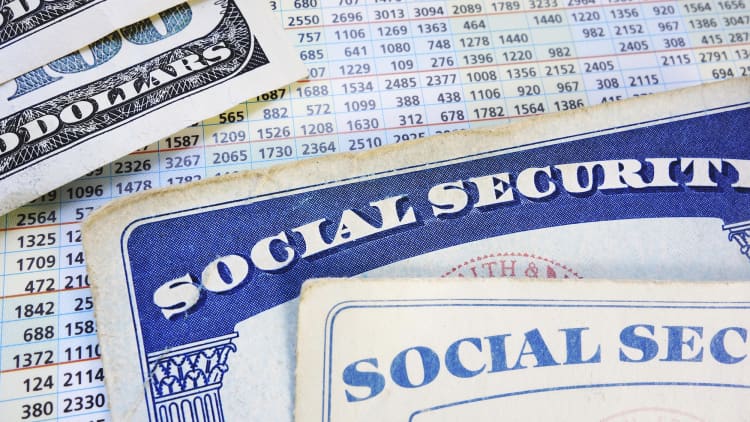
Quick — what's the most important Social Security number?
No, it's not your personal nine-digit identification. It is 76, the percentage by which your benefit can increase if, instead of claiming at age 62, you wait until you are 70 years old.
That would seem to make waiting to claim Social Security a no-brainer, and for many it is. But recent rule changes and findings on longevity suggest that in some cases, your best claiming strategy may be something else.
The Nationwide Retirement Institute last June commissioned a survey of adults age 50 or over on retirement and Social Security and found that 45 percent of recent retirees were planning to receive or are receiving benefits before their full retirement age.
One big factor to consider with Social Security is your likely life expectancy. The longer you are likely to live, the more likely you are to benefit from claiming your benefits later, since you will receive larger payments for a longer time.
A 65-year-old man today is likely to live to age 84.3 and a woman to 86.6, according to Social Security Administration calculations. So if you are going to reach that age, waiting may be your best plan.
"If it's highly likely that you are going to live past 81, you are better off waiting," said Kate Rooney, a CPA and a principal with Edelstein & Company.
But if you have an unlucky family medical history or are already in poor health, that approach may not make sense. Kevin McGarry, director of the Nationwide Retirement Institute, said that if you are not working and you do not expect to live past 77, it can make sense to claim your Social Security benefits at age 62.
A recent analysis by the Center for Retirement Research at Boston College found another reason some people might consider claiming Social Security early.

Average life expectancy has been increasing more or less steadily for years, but researchers at the center found that people with a lower socioeconomic status, or SES, tend not to live as long.
In addition, while all groups are living longer, the life-expectancy gap between the lowest SES groups and the highest has widened since 1979. As a result, for men in the lowest SES quartile to even maintain the same share of their lives in retirement as they had in 1979, they would retire at 68.1 years of age, compared to 69.6 for the top male quartile. (For women in the lowest quartile, retirement would need to come at age 66, compared to 67.2 for the top quartile.)
The authors were writing about longevity and retirement age, not Social Security claiming, but it is clear that a significant share of people over age 65 rely heavily on the program. According to the Social Security Administration, 21 percent of elderly couples and 46 percent of elderly unmarried counted on Social Security for 90 percent of their income in 2013, the latest data available.
Even if you do not plan to claim your benefits early, you may find it useful to file before age 70, Rooney said. For example, say you file at age 66 and plan to work to age 70. If you then fall ill or suddenly need the income at age 68, you have the option to claim — and if you have filed at 66, you have two options for receiving your benefits.
You can either begin receiving benefits immediately at your current level, or receive your benefits retroactively from when you filed. If you do the latter, your monthly checks will be set based on your age when you filed, but if you have an urgent need for cash or know your life expectancy is shorter, that may make sense.
"It takes on the air of an insurance policy," Rooney said. "Locking it in is still a valuable tool."
If you think Social Security is going to run out, that is not the right reason to take Social Security.Kevin McGarrydirector of the Nationwide Retirement Institute
McGarry pointed to another possible reason for filing early. In a couple with a big age difference and an older spouse earning more, it may make sense for the younger spouse to file as soon as possible after the older spouse reaches age 70. That way, the younger partner receives benefits as long as possible.
That said, there are thousands of different ways for couples and individuals to file for Social Security, but not all of them, experts said, are beneficial.
McGarry pointed out that claiming benefits before your full retirement age if you are still working can prove to be a costly move. Not only will you receive lower monthly checks, you will also have $1 of your benefit withheld for every $2 you earn above $15,720.
Once you stop working, the Social Security Adminstration will return what they have withheld, but it will be added back to your checks in increments "for the rest of your life," McGarry said. "If you are working, it is really not a good idea to file early."
That is not McGarry's only reason not to claim benefits early. He said he has spent time with members of Congress from both parties, and he believes they are committed to preserving Social Security.
"If you think Social Security is going to run out," he said, "that is not the right reason to take Social Security."







